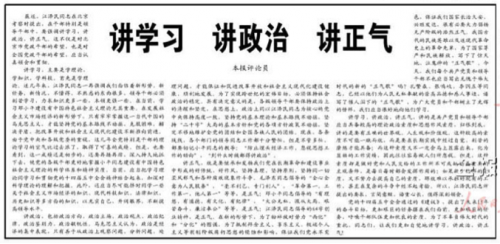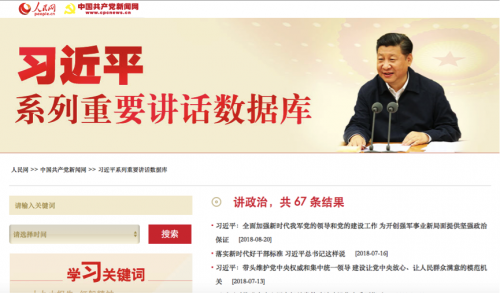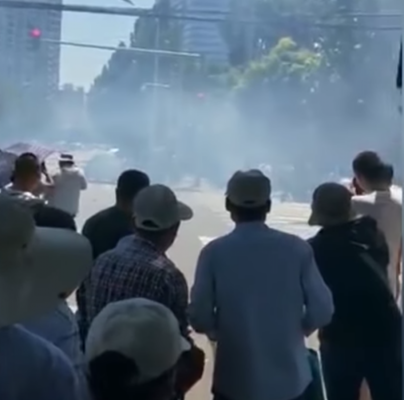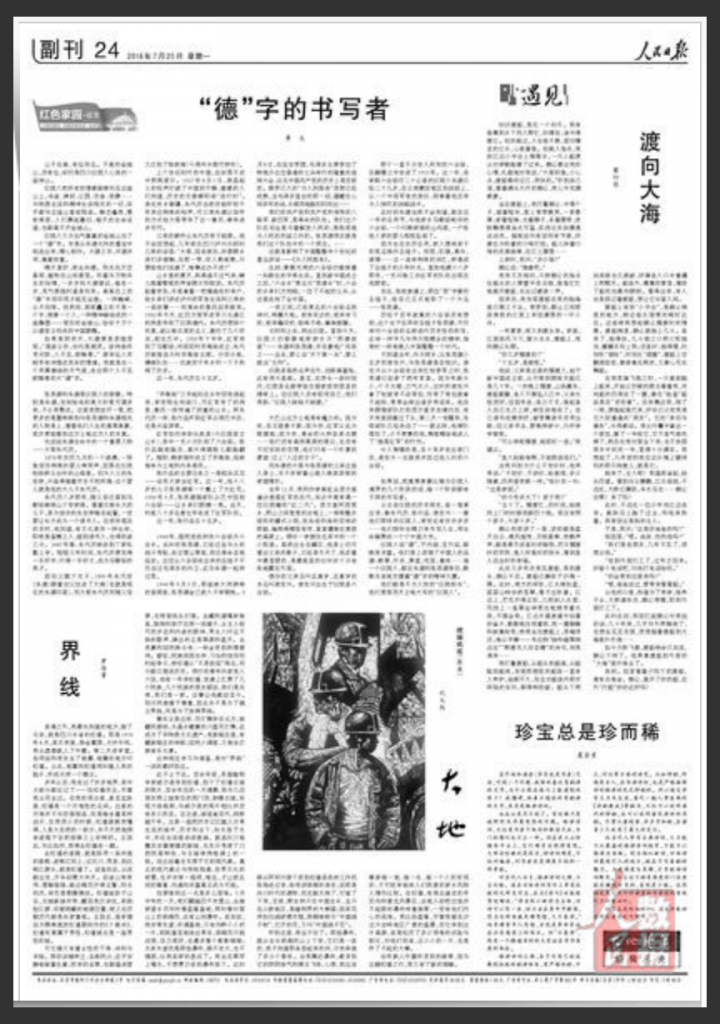Speaking Politics 讲政治
There was a time in the Chinese language when “speaking politics,” or jiang zhengzhi (讲政治), meant simply to “discuss politics” (谈论政治). Over time, however, the word “talk” has slipped away from the colloquial notion of discussion and become a verb with deep and far-ranging meaning within the official discourse of the Chinese Communist Party.
Officials can now say things like: “We need not only to talk politics, but also to talk art” (不光要讲政治, 也要讲艺术) — which means, in the context of ideological policy in the arts, that works of art must have artistic merit even as they maintain the political standards set by the Party leadership.
The word “talk” can also suggest “doing” or “participating.” In 1957, in the midst of the Hundred Flowers Movement, some criticized the Chinese Communist Party, saying that “speaking politics is fine, but speaking science is not.” The implication here being that the Party should confine itself to political matters and not presume to meddle in the sciences.
But it was not until November 25, 1995, that the phrase “speaking politics” first appeared in a headline in the official People’s Daily newspaper.
In that headline there were three different “talks,” known collectively as the “Three Talks” (三讲) of President Jiang Zemin. They were: “speaking study” (讲学习), “speaking politics (讲政治) and “speaking rectitude” (讲正气). As the People’s Daily explained the first of these:
Speaking politics includes political orientation (政治方向), political standpoint (政治立场), political viewpoint (政治观点), political discipline (政治纪律), political discernment (政治鉴别力) and political sensitivity (政治敏锐性). . . . Leading cadres at various levels must maintain politically clear-headed and resolute, maintaining a high level of uniformity in their ideology and politics with the CCP Central Committee with Comrade Jiang Zemin as the core.
Clearly, things like “political standpoint” and “political discernment” were not matters of personal conviction but of unity and cohesion with the Party leadership. The need was to emphasize the Party’s politics and pay them special mind. There was nothing to discuss.
By the time the above piece appeared in the People’s Daily, Deng Xiaoping was already old and frail, a little more than a year away from his death. In order to firm up his political position,Jiang Zemin had already purged key figures like Yang Shangkun (杨尚昆) and Yang Baibing (杨白冰) from the Party and the military. So the ultimate meaning of “speaking politics” in this context was tied up with the idea of validating and affirming Jiang’s own “core” status.
This, in fact, is a use of the phrase that has made a comeback today, more than 20 years later. In its special section devoted to the study of Party buzzwords (关键词), People’s Daily Online noted that President Xi Jinping had used the phrase “speaking politics” 67 times — which is to say in 67 separate contexts or speeches — since coming to office.
At the Propaganda and Ideology Work Conference in August 2018, “speaking politics” reared its head again. Here is a passage from a recent commentary in the People’s Daily:
Propaganda and ideology work is political work, and [correct] politics is imperative in matters large and small. The strengthening of the Party’s comprehensive leadership of propaganda and thought work should be led by political building (政治建设), firmly establishing the “Four Consciousnesses” (四个意识), firmly defending the core status of General Secretary Xi Jinping, firmly defending the authority of the Central Party and its central, unified leadership, maintaining a high level of unity with the Central Party in terms of political positions (政治立场), political orientation (政治方向), political principles (政治原则) and political path (政治道路). The decisions of the Central Party must be carried out to the letter (不折不扣贯彻落实), and propaganda and ideology departments at all levels must . . . regularly synchronize themselves with the demands of the Central Party. [The Party] must maintain clear heads (保持清醒头脑), raising political sensitivity (政治敏锐性) and [the power of] political discernment (政治鉴别力), not allowing interference by static and noise (杂音噪音), not being tempted by erroneous ideas. [The Party] must strictly maintain the Party’s political discipline and political practices, taking the speaking of politics (讲政治) as a primary demand, and taking loyalty and reliability as the first standard, acting throughout as a person who understands politics (政治上的明白人) and is trustworthy [in their politics].
When it comes to “speaking politics,” that passage is a mouthful. But despite appearances, the language could scarcely be clearer: Xi Jinping is politics, and Xi Jinping’s power and status is the greatest politics possible. “Speaking politics” means firmly heeding what he has to say, and following his lead.




